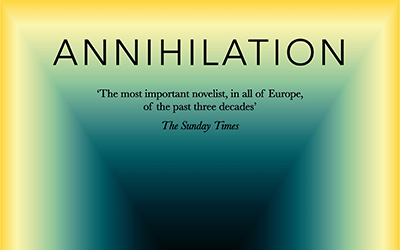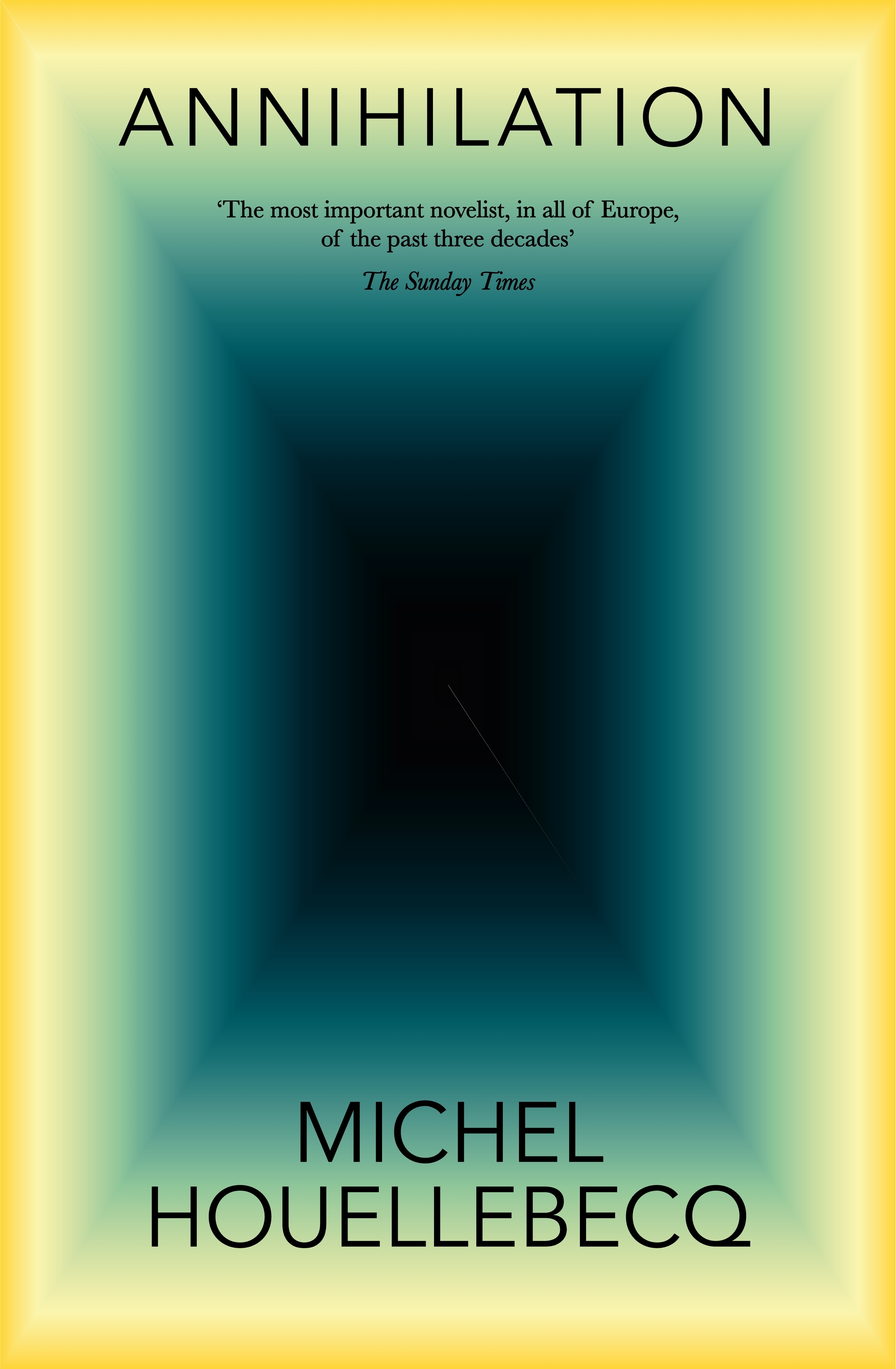
- Free Article: No
- Contents Category: Fiction
- Review Article: Yes
- Article Title: ‘Finished, forever’?
- Article Subtitle: Michel Houellebecq’s final novel
- Online Only: No
- Custom Highlight Text:
Michel Houellebecq’s novels cover a lot of territory. His approach to writing is a totalising one, offering a complex picture of contemporary society, often including its prehistory and its near or sometimes distant future. Annihilation (first published in 2022 and now available in English) bears all the hallmarks of this approach: a description of a sad dinner where two government ministers discuss their failed marriages is interrupted by digressions on the current state of the European car market and the impact of recent constitutional reforms on the upcoming presidential elections; a hospital bedside visit is punctuated by reflections on the French medical system and a comparative analysis of Tibetan and Zen Buddhism. The novel features typical Houellebecqian characters who, in the author’s words, have reached a ‘kind of standardised despair’ and ‘the deterioration of reasons for living’. - Featured Image (400px * 250px):

- Alt Tag (Featured Image): David Jack reviews ‘Annihilation’ by Michel Houellebecq
- Book 1 Title: Annihilation
- Book 1 Biblio: Picador, $34.99 pb, 527 pp
- Book 1 Cover Small (400 x 600):

- Book 1 Cover (800 x 1200):

- Book 1 Readings Link: https://www.readings.com.au/product/9781035026401/annihilation--michel-houellebecq--2024--9781035026401#rac:jokjjzr6ly9m
In his more recent novels, Houellebecq, now sixty-eight, began experimenting with different genres, something he continues here. For the most part, the novel’s focus shifts from macro to micro and back again in a rhythm in which Houellebecq is well versed, primarily moving between two interconnected narratives or genres: political thriller and family melodrama. These narratives form a kind of Venn diagram, with the character of Paul Raison occupying the point where they intersect. The political narrative follows Paul’s relationship with minister and future candidate for president, Bruno Juge, for whom he acts as adviser. Their preparations for the forthcoming elections are thrown into disarray when three heavily encrypted videos are posted on the internet, one of which features a deepfake decapitation of Bruno. It soon becomes clear they are dealing with a mysterious terrorist organisation bent on nothing less than the annihilation of Western technocapitalism. All Paul and Bruno have to go on are the videos, a drawing of the devil with a pentagram etched into his forehead, and the obscure relationship between a nineteenth-century occultist, a militant socialist, and prime numbers. Are they Satanists, ecofascists, anarcho-primitivists, or radical Catholics? Each is ruled out in turn, only deepening the concern that they don’t know exactly who they are dealing with. The family melodrama is less intriguing in a narrative sense, centring on the sudden hospitalisation of Paul’s father and his transferral to end-of-life care. It is, however, punctuated with musings on family, life, death, and the very notion of care, which raise broader questions about our society and our place in it. This shifting of narrative focus continues for almost 400 of the 500 pages before the novel suddenly zooms in on Paul and his partner, Prudence, as they contemplate a particular annihilation of their own.
The novel’s mood is sombre from the first sentence, a mood which quickly develops into something disturbing, even sinister. Houellebecq ‘built’ it around Pascal’s famous aphorism about death, which Paul cites in its entirety: ‘The last act is bloody, no matter how fine the rest of the play. They throw dirt over your head, and it’s finished, forever.’ Or is it? The novel opens up a space to consider something Houellebecq has never genuinely considered in his novels: the possibility of something else. Maybe this is not meant to be taken seriously, particularly as it becomes a philosophical refuge for Paul and Prudence in their hour of need. Nonetheless, the novel does permit room for hope, the dirty word among pessimists and the leading cause of suffering for all of Houellebecq’s protagonists.
As with Houellebecq’s other novels, there remains the question of representation, particularly where his sexual politics are concerned. The novel’s men – white, miserable, and patronising – represent the last bastion of a colonialist patriarchy under threat on all sides, as a passing reference to cancel culture attests. They are judged not by their character but by their successes in the world of politics and business.
Women are assessed largely according to their physical appearance, and valued for their humility or their ability to perform either sexually or in the role of carer. The exception is Prudence, who shows herself to be the bravest and the sincerest character when it comes to facing life’s inevitabilities; she is able to give meaning and value to life in the face of annihilation. Paul’s initial dismissal of her interest in esoteric philosophies as ‘something to do with essential oils’ is transformed by the end of the novel into a willingness to entertain the idea that there may be more to life than his materialism and pseudo-Freudianism suggest. ‘The hard thing gives way,’ as Betrolt Brecht once wrote, referring to the Tao Te Ching as a foil to capitalist ideology. In a sense, Annihilation is about the softening around the edges of a hard, masculine world view.
Annihilation is a compelling read in spite of its questionable sexual politics. These can’t be pinned on Houellebecq, who employs what the French call indirect libre, a mediated form of narration in which the narrator refrains from making any assertions not expressed or thought by a character. The pacing is near perfect; only occasionally does the melodrama take a little too much oxygen from the political thriller. For the most part they nourish each other, demonstrating the interrelationship between individual and society central to Houellebecq’s work. The translation of the title is curious. The original French uses the verb in the infinitive Anéantir (to annihilate), which is not necessarily reflected in Shaun Whiteside’s choice of Annihilation. The latter captures the more passive fate of human beings facing death and a society facing destruction, but does not speak to the more active forms of destruction, such as the destruction of the Western ego. The book may also be the annihilation of Michel Houellebecq the writer, who has announced that this will be his last novel.


Comments powered by CComment